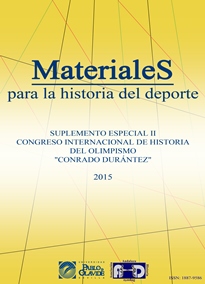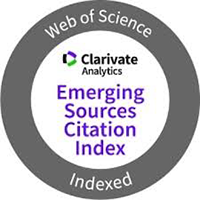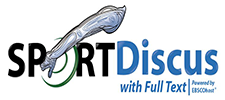Values of Olympic Movement in physical education: its content and presence in high school in Spain
Keywords:
values, Olympic Fundamental Principles, Pphysical education, Olympic Movement.Abstract
The aim of this toil has been meeting and identifying the values in the Olympic ideology and its presence in Spanish schools. Its beginning came from the identification of the present values in the Olympic ideology making a review of the data related with this content from the genesis of the olympisim to the 2007 Olympic Letter. After making a categorization we started to know which values were present or not in the Spanish curriculum of the Mandatory Secondary Education (ESO) in the Spanish physical education. From the point of view of a perspective on a qualitative research, we started a documental analysis of sources that inside the Olympic Movement had as aim of study the values. The presence of them in the Spanish schools was treated from the curriculum of E.S.O. of the physical education of Real Decreto 1631 of 2006 and the educational projects of the centers. Many interviews were made to teachers, in order to know the thoughts and aims of those protagonist who teach Physical education subject. It can be concluded that there are two proposed values in the olympic ideology that have been being developed in the studied Spanish schools: fair play and respect to the others.
Downloads
References
Alguacil Gómez, Julio. Cómo se hace un trabajo de investigación en sociología, Madrid: Catarata, 2011
Binder, Deanna. Teaching values: an olympic education toolkit. A Project of the International Olympic Committee, Laussanne, Switzerland, 2007.
Bolívar Botia, Antonio. Los contenidos actitudinales en el currículo de la reforma. Problemas y propuestas. Madrid: Escuela Española, 1992.
Canedo Ibarra, Sabrina Patricia. “Contribución al estudio del aprendizaje de las ciencias experimentales en la educación infantil: cambio conceptual y construcción de modelos científicos precursores”, Tesis doctoral en el Programa de doctorado en didáctica de las ciencias experimentales y la matemática. Universitat de Barcelona, 2009.
Durántez Corral, Conrado. El movimiento Olímpico moderno y su filosofía: El ideario, Madrid: Academia Olímpica Española, s/f.
González Boto, René; Tabernero Sánchez, Belén. “Los temas transversales y la educación en valores dentro del nuevo marco legislativo estatal”, III congreso de la Asociación Española de Ciencias del Deporte. 11-13 Marzo del 2004. Valencia, 2004.
Gutiérrez Sanmartín, Melchor. Manual sobre valores en la educación física y el deporte, Barcelona: Paidós, 2003.
Hammer, Dean y Wildavsky, Aarón. “La entrevista semi-estructurada de final abierto. Aproximación a una guía operativa”, Historia y Fuente Oral, (4), 1990, 23-61.
Martínez Carazo, Piedad Cristina. “El método de estudio de caso: estrategia metodológica de la investigación científica”, Pensamiento & gestión. (20), 2006, 165-193. Colombia: Universidad del Norte.
Martínez Mínguez, Lourdes. Educación Física, transversalidad y valores, Madrid: Wolters Kluwer España, 2008.
Peixoto Pino, Lucía. Proyecto interdisciplinar “Escuela: Comunidad olímpica”, Retos, Nuevas tendencias en Educación Física, Deporte y Recreación. (25), 2014, 140-143.
Prat Grau, María; Soler Prat, Susanna. Actitudes, valores y normas en la educación física y el deporte. Reflexiones y propuestas didácticas, Barcelona: Inde, 2003.
Stake, Robert E., Investigación con estudio de casos, Madrid: Morata, 2007.
Downloads
Published
Issue
Section
License
Authors who submit to this journal agree to the following terms:
- Author(s) keep copyright and guarantee to the journal the right to be the first publication of the work as licensed under Creative Commons Attribution-Noncommercial-ShareAlike 4.0 International as initial publication in this journal.
- Author(s) can establish additional agreements for non-exclusive distribution of the version of the work published in the journal (for example, to an institutional archives or to publish it in a book), with an acknowledgment of its initial publication in this journal.
- It is allowed and authors are encouraged to disseminate their work electronically (e.g, in institutional open archives or on their own website) before and during the submission process, as it can lead to productive exchanges, as well as a citation earlier and more of published work (See the Effect of Open Access).












